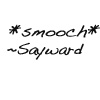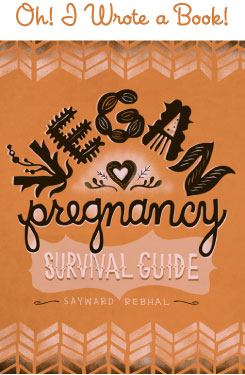Eat food. Not too much. Mostly plants.
Those seven words, which I absolutely agree with, are the thesis of Michael Pollan’s most recent treatise. The book itself was probably the final spark that ignited this whole foods movement, illuminating the issue across America and beyond. So, if I agree with Pollan’s core concept, and I am willing to credit him with generating revolutionary interest, why am I about to give a negative review? Buckle up my dears – I don’t worship Michael Pollan the way that everybody else appears to.
In Defense of Food is set up in three sections: The Age of Nutritionism, The Western Diet and the Diseases of Civilization, and Getting Over Nutritionism. In part I, Pollan lays out an interesting timeline of food science and health philosophy in the late nineteenth and twentieth centuries. In part II, his argument is presented and explored. This is the real crux of the work, but there are undeniable omissions here. Finally, part III brings about his lackluster conclusion.
Let’s start at the beginning.
I very much enjoyed myself while reading part I. I thought it offered a well-researched, if not terribly well written, history of nutrition science. I learned a new word, orthorexia: a person with an unhealthy obsession with eating healthy (from ortho=correct, and –exia=appetite). And I learned some new trivia, regarding the origin of the word ‘vitamin’, which was coined in 1912 by a Polish biochemist named Casimir Funk. Yes, really. Coolest. Name. Ever.
But the point of this portion was to introduce what Pollan calls ‘nutritionism’, or “the idea that a food is not a system but rather the sum of its nutrient parts”. He rails against ‘nutritionism’, and for the most part I agree with him. However, Pollan covers a lot of ground in his indictment of nutrition science – not all of which is worthy of his wrath. In fact, it’s this very heavy-handed critique that comes back to bite him in the ass later on.
A lot of good information has come from the study of nutrition, but Pollan makes it seem as if all nutrition scientists are corrupt, as if all biochemistry is inherently flawed. I think there is a middle ground, but perhaps I’m biased. I am, you know, a scientist after all.
In part II Pollan lays out his case against the standard American diet (SAD), and my big issue here is not the information he presents. It’s what he doesn’t say.
Pollan argues that different people eat different foods, based on availability. People in Scandinavia eat lots of fish and little fruit, and people in the Amazon eat lots of fruit and foraged goods, and Inuits eat pretty much only blubber. Each of these groups are relatively free from the diseases that destroy us – heart disease, diabetes, obesity – though they all eat drastically different diets. So what’s wrong with what we’re eating, that’s effing us up so badly? Well, white flour, for one. And refined sugar. High fructose corn syrup. Preservatives. Additives. Processed ‘foods’. The thing that native people have in common is that they’re eating whole foods.
Duh. Yadda yadda. We know this by now, right? (to be fair, this wasn’t such a popular idea a few years ago, when the book was published)
What I kept asking myself while reading about these many indigenous peoples of the world, was this: Where’s my peeps at? Where’s all the plant-based diets? Pollan didn’t touch on the peoples who live without animal ‘foods’ – although there are plenty. I find this absence dishonest, and, given Pollan’s attention to detail, most certainly intentional. Dishonest, but not surprising, as Pollan has a bit of a *history* with vegetarianism (see this excellent review of The Omnivore’s Dilemma).
So we spend the first third of the book derailing reductionism and the dangers of lipophobia and obsession over single nutrients. But then, we spend a goodly portion of the next third . . . touting the glory of the magical omega 3. As Pollan writes: “Could it be that the probem with the Western diet is a gross deficiency in this essential nutrient?” Um, hypocrisy? You betcha! And Pollan even admits it, in the very first paragraph of part III: “You’ve no doubt noticed that much of the nutrition science I’ve presented here qualifies as reductionist science, focusing as it does on individual nutrients . . . rather than on whole foods or dietary patterns. Guilty.”
Sorry, but an admission does not excuse you my friend, and you don’t get to have it both ways.
The rest of part III was hard to find fault with. It’s true: his basic ideas are solid.
It’s funny to me, that I felt like I needed some sort of ‘cultural permission’ before I felt comfortable criticizing such a widely acclaimed author. Really, everyone I’ve ever met has such a hard-on for this dude. It makes you doubt your skepticism. But, once I allowed myself to question, the floodgates were opened and all my misgivings articulated at the surface.
Michael Pollan, I must call you out as a coward. I know you’re smart enough to see the science; to see the contradiction in your ‘foodie’ infatuation with fancy meals laden with meats and dairies. You know that it’s detrimental to your planet, and to your own health. Vegetarianism isn’t actually difficult, and veganism isn’t some imaginary utopia. I guess I just wish you would be honest about that, in one of your grand manifestos.
You have the ear of the world. Would that be so hard to say?

-
http://hollowstar.com J
-
http://www.heathers-perspective.blogspot.com Heather
-
http://www.mevrouwcupcake.com Mari
-
Leigha
-
Adam
-
http://daoine-o.livejournal.com/ daoine o’
-
Dylan
-
Dylan
-
IngaG



